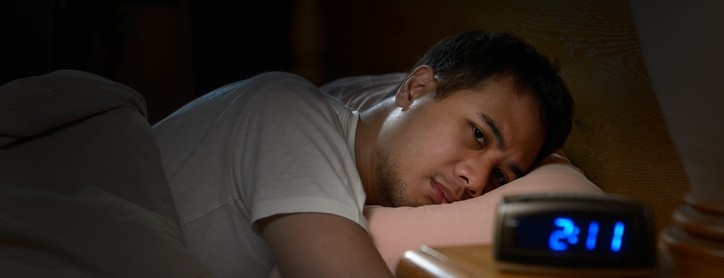
Why is anxiety worse at night?
UC expert featured in TIME article
The University of Cincinnati's Jeffrey Strawn was featured in a TIME article discussing why anxiety can often be worse at night and tips to address nighttime anxiety.
Strawn said during the day, people are likely preoccupied with work, errands, chores and other obligations, but at night the brain has fewer distractions. Especially once you get into bed, this can create a “perfect setup for that runaway anxiety, that ruminative thinking about ‘what if’ and ‘what about,’ and then also replaying the prior day,” he said.
Getting into a good sleep routine and a good night's rest can help ease anxiety.
“Sleep is medicine,” said Strawn, MD, professor in the Department of Psychiatry and Behavioral Neuroscience in UC’s College of Medicine and a UC Health child and adolescent psychiatrist.
If you're spiraling into anxiety while in bed and unable to fall asleep, Strawn said it's important to get out of the bed. He recommends doing something that isn't cognitively stimulating, like reading your dishwasher's manual, to avoid subconsciously associating your bed with worry and wakefulness.
“If folks aren’t able to fall asleep in about 15 minutes, I want them to get out of bed,” he said.
Featured photo at top of a person awake in the middle of the night. Photo/amenic181/iStock Photo.
Related Stories
UC, Children's join $20 million statewide research effort
August 16, 2024
The Cincinnati Business Courier highlighted the University of Cincinnati and Cincinnati Children’s being part of a collaborative research initiative designed to identify the root causes of the ongoing epidemic of persistent emotional distress, suicide and drug overdose in the state of Ohio.
Cape Girardeau, Missouri news highlights UC clinical trial
February 20, 2024
KFVS-TV in Cape Girardeau, Missouri highlighted a University of Cincinnati clinical trial testing a wearable neurostimulation device to help patients with opioid use disorder and post-traumatic stress disorder stick with medication treatment while finding the right dose.
Enquirer: Experts discuss reasons for drop in overdose deaths
April 12, 2023
The University of Cincinnati's Christine Wilder, MD, spoke with the Cincinnati Enquirer about Hamilton County data that overdose deaths in 2022 dropped for the first time in six years.
